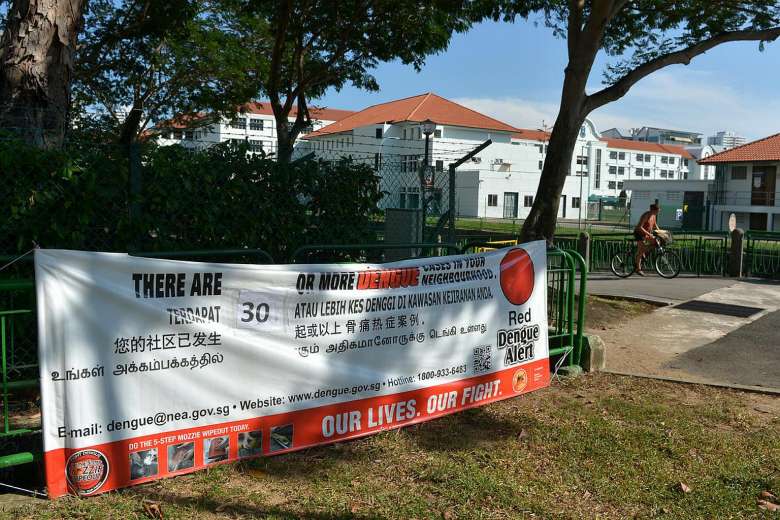Singapore is facing another possible surge in dengue infections as the National Environment Agency (NEA) reports rising numbers of the Aedes aegypti mosquito that spreads the disease.
The number of dengue cases has just crossed the 10,000 mark for the year and, although infections have dipped in recent weeks, this could be the lull before the storm.
Five of the six people who died this year were aged above 60.
An infectious diseases expert has cautioned that dengue is not only more lethal for the elderly, but also harder to spot when it infects them.
A spate of infections at the start of the year had led experts to warn that it could lead to a record 30,000 dengue cases this year.
The highest number of infections here was in 2013, when more than 22,000 people were struck.
The surge at the start of this year was caused primarily by a change in the circulating virus from Den-1 to Den-2.
There are four dengue strains, so people infected with one strain can get sick when infected with a different strain.
With the NEA swinging into action to stamp out mosquito breeding, the infections tapered off in March and fell to fewer than 300 cases a week by April and stabilised.
Last week, 224 people were diagnosed with dengue, a drop of 42 cases from the previous week.
However, the NEA said its mosquito traps – set around the island – have shown “a steady increase” in the Aedes aegypti mosquito.
“This indicates an abundance of the mosquito vector in our community,” it said on its dengue website.
It added: “As we are in the traditional peak dengue peak season, we anticipate an upward trend in the number of dengue cases in the coming months.”
The mid-year hot and wet weather could push up the mosquito population as they breed faster in such conditions.
The NEA added that as “a large proportion of our population is susceptible to dengue due to the lack of immunity”, the higher number of mosquitoes could lead to a surge in cases.
Professor Leo Yee Sin, director of the Institute of Infectious Diseases and Epidemiology at Tan Tock Seng Hospital, said doctors are seeing more dengue cases among older people here.
The high number of deaths among the elderly is not due to a more virulent viral strain as the five deaths were caused by three different strains.
Prof Leo said: “It is well documented that older patients have higher mortality when infected with dengue.
“As long as the age trend continues, we foresee more severe cases and deaths among the older folk.”
She added that it is harder to identify dengue in older people as their symptoms tend to be milder, but the effect of the infection could be more severe.
Their fever is not as high and they have fewer rashes, aches and pain.
They often have existing chronic diseases that make them “have more severe outcomes, more organ involvement, as well as more bleeding”, Prof Leo said.
She said doctors need “a higher index of suspicion” when treating older people and should rely more on diagnostic tests to confirm if the person has dengue.
– facebook.com/ST.Salma

This article was first published on August 3, 2016.
Get a copy of The Straits Times or go to straitstimes.com for more stories.






























